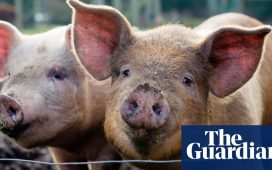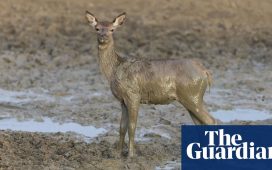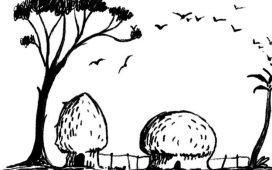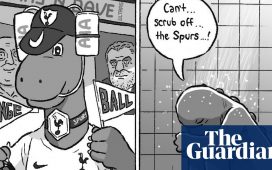The Gauteng High Court in Pretoria has ruled in favour of the NSPCA regarding the welfare of lions in captivity and how that should affect the setting of an export quota for lion bone.
In a judgment this week, Judge Jody Kollapen said it was inconceivable that the Department of Environmental Affairs (DEA) could have ignored the welfare considerations of lions in setting the annual export quota of lion skeletons.
“My view is that the minister erred in concluding that since she was not seized with the welfare mandate for lions in captivity, she was not obliged to give consideration to welfare issues relating to lions in captivity when determining the quota,” the judge said.
READ | NSPCA furious that SANDF horse abuse case has stalled
He found the DEA’s decision to set the quota for the exportation of 800 lion skeletons in June 2017 and 1 500 in 2018 had not followed due process and was “unlawful and constitutionally invalid”.
If the quota signals to the world and the captive lion industry that the state allows exports of lion bone, he said, it cannot be correct to assert that this can occur while indicating that the way which lions in captivity are kept is an irrelevant consideration.
“Simply put, if as a country we have decided to engage in trade in lion bone, which appears to be the case for now, then at the very least, our constitutional and legal obligations… require the consideration of animal welfare issues.”
Victory
The judgment is a victory for the NSPCA, which took the case to court. The organisation has been documenting incidences of alleged cruelty to lions used in canned hunting and trade in lion skeletons.
Kollapen noted that it was impossible to reverse the quota process and that the court’s task was merely to establish the legality of the action. The court therefore did not halt the export of lion bone.
The NSPCA had opened a number of criminal cases against captive lion facilities that allegedly neglected – and in some instances completely disregarded – the welfare of their lions.
The department told the court it did not regard welfare considerations of lions in captivity relevant to the determination of the annual quota.
But Kollapen disagreed, noting a minority judgment in a previous NSPCA case in which the court “recognised that animals are worthy of protection – not only because of the reflection that it has on human values, but because animals are sentient beings that are capable of suffering and of experiencing pain”.
A unanimous full Bench found canned hunting of lions “abhorrent and repulsive” due to the animals’ suffering. Animal welfare was therefore central to decisions about captive breeding.
Last year, the NSPCA filed notice to set aside the export quota of 800 lion skeletons.
Before this could be reviewed, the minister upped the annual quota for 2018 to 1 500, but later reduced it to 800 again.
Canned lion hunting
The organisation contended that cruelty to lions was an inevitable consequence of the DEA’s actions and was therefore “committed to fighting this decision in court to protect the lions of South Africa”.
“With trophy hunting, the lions are required to be in good condition. This is not the case with the lion bone trade. There’s no economic incentive for breeders of captive-bred lions to ensure that their lions are appropriately fed and maintained in a good condition, since all that is required is an adult lion skeleton,” it said.
With increasing international opprobrium for canned lion hunting and subsequent bans on trophy imports, breeders have been switching to the bone trade as their primary business.
From reports and photographs of breeding facilities – mainly in the Free State and North West – there is growing evidence that breeders are spending as little as possible on lion upkeep to maximise profits.
There are around 8 000 lions in captivity in South Africa and 3 000 wild lions.
The DEA argued that welfare was not their domain and claimed it was the responsibility of the NSPCA.
The court finding on Wednesday was that, to the contrary, it was the department’s duty to take into account the welfare of wild animals when making any decisions affecting them.
“We are overjoyed that the importance of animal welfare and the vital and legal role of the NSPCA in protecting captive and wild animals has been recognised in this precedent-setting judgment,” said Karen Trendler, manager of the NSPCA’s wildlife trade and trafficking portfolio.
“One cannot simply use, abuse and trade wildlife without considering their welfare and well-being.”
Narend Singh of the IFP lauded the decision: “The African lion is a symbol of great traditional power and authority and has been reduced to nothing but a mere commodity for the profit of a few wealthy breeding operations.”
Judge Kollapen said the judgment was important for current and future generations in addressing the manner in which society interacts with wildlife and the environment.
GET THE NEWS at your fingertips and download the News24 app for Android here now. Get it for your iPhone here.
KEEP UPDATED on the latest news by subscribing to our FREE newsletter.
– FOLLOW News24 on Twitter













